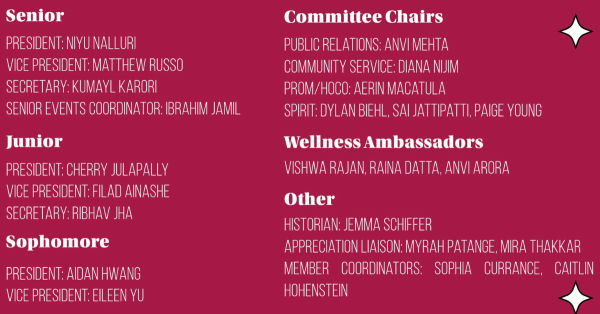Suicide Prevention at Lambert
Due to the nature of this article, all students are to remain anonymous

On November 3rd and 4th of 2021, Lambert High School counselors will be required to give The “Signs of Suicide” presentation to freshman students. Forsyth County requires every high school to give these presentations to students annually. Not once after 9th grade do students ever hear or see this presentation again.
“We had the talk in 9th grade and I don’t remember it at all,” Sophomore Hunter Dzerve states. “Absolutely none of it.”
Something as crucial as the mental health and wellbeing of students shouldn’t be a memory so far removed for students. Children spend an average 15% of their adolescents in a school building, making it imperative that a strong support system for students is appropriately implemented. Lambert claims to have the best interests for their pupils, but if this is true, why isn’t more being done in the mental health and suicide department? So far, it seems Lambert is doing the bare minimum to meet county requirements about suicide prevention.
“I don’t really remember what happened, they just gave me a paper one day then I completely forgot about it,” an anonymous freshman told me when prompted about the upcoming talk. “I remember reading it was about suicide prevention but that was the only thing [Lambert Administration] has done so far.”
Schools serve as more than academic facilities, they also strive to support students in extracurriculars, interpersonal skills and other areas. Lambert is no different. On the Lambert High school homepage, under the “LHS Goals” section, Lambert states,
“Lambert High School students will exceed state percentages on all AP exams and SAT/ACT tests,”
The Forsyth County school district is one of the most academically and extracurricularly competitive regions in Georgia. Lambert prides itself in high AP scores and above-average test grades. The message to achieve academic greatness is pushed all over the school. But is it too much? Is Lambert High School causing more harm than good by pushing students to the level they are?
On October 20th, I set out during 5th period lunch eager to hear what students had to say about the situation.
“I don’t think lambert does enough to talk about suicide prevention, the work ethic here is extremely high, although it has many positives…it can also cause depression, anxiety and stress,” An anonymous sophomore relayed.
Depression, anxiety and stress can be major catalysts for suicide. A massive contributor to these factors is taking Advanced Placement (AP) courses. AP classes mimic a college workload, which oftentimes collides with a high schooler’s schedule which causes an increase in stress levels. Suicide is the second leading cause of death in teens, having increased 35% since 1999. 20% of American teens reported experiencing depression before graduating from high school.
Prioritizing one’s mental health above all else has become a very prominent message through media in recent years. Gurus throughout social media have been promoting taking care of your mental health before your job, schooling and other responsibilities. Despite the open conversations being held online, mental health and suicide are somewhat stigmatized in schools, which is understandable. School staff must tread carefully when addressing such topics. There’s a very thin, blurry line separating due diligence and overstepping into students’ privacy.
While that line is there, Lambert leaps and bounds from it. The Lambert Post conducted a survey of 240 Lambert students. Out of that 240, 88% of students believe Lambert High School is not doing enough to spread awareness about mental health and suicide, nor do they do enough to address these issues in school. When discussing this topic with students, many had a lot to say.
“[Heck] no, Lambert doesn’t do [anything],” a senior exclaimed when I asked them if they felt like they were supported in the mental health department.
The senior’s friend group which was made up of about 6 people, all nodded or spoke up in agreement. When I asked if they remember the suicide prevention talk they would have had in 9th grade, many couldn’t really recall what actually happened at the talk.
“I kinda remember that we did have like some kind of talk once, but I dunno what [the counselor] even said,” a member of the group told me.
Something that really stuck with me during my interviewing process was the phrase “Academic Toxicity.” Academic toxicity refers to the rat race of advanced classes many students partake in. There’s a constant battle to be the student with the highest academic prowess. Who’s taking the most AP’s? Who has the highest SAT score? Who received the best grade on this exam? Oh, you’re only taking 5 APs? I’m taking 7 and 2 more on GAVs.
I asked the aforementioned student who coined the phrase, “Academic Toxicity” if they believed there should be a cap on how many APs students should take. To my surprise, the answer was no.
“I think students should know themselves…you should know yourself and what you can do and can’t do and your limits.” the anonymous source stated.
That being said, there is extreme peer pressure not only from other students but for the school to have as many APs as possible. In our suburban bubble, it has become the status quo to take multiple rigorous courses, arguably too many rigorous courses, in order to not be seen as “lesser than.” Teachers and parents alike state that your course load doesn’t define how smart you are or your character, but words are just words. It doesn’t change the immense pressure that is weighing down on students. The education system is so hypocritical. How can teachers claim to support students when they continuously push them over the edge, claiming that they won’t get into a good college unless they reach a certain grade threshold. Many college programs only look at a student’s SAT, ACT and weighted GPA instead of examining a student as a whole. The
Many students at Lambert are taking rigorous courses that cause extreme anxiety, stress and depression that if gone untreated, can lead to suicide. In a survey done by The Lambert Post, 88% of students feel unsupported by their school. The ball is in the administration’s court. Will Lambert High School rise to meet the demands of students, or will the student body’s words fall on deaf ears?
Your donation will help support The Lambert Post, Lambert High Schools student-run newspaper! Your contribution will allow us to purchase equipment and cover website hosting costs.









